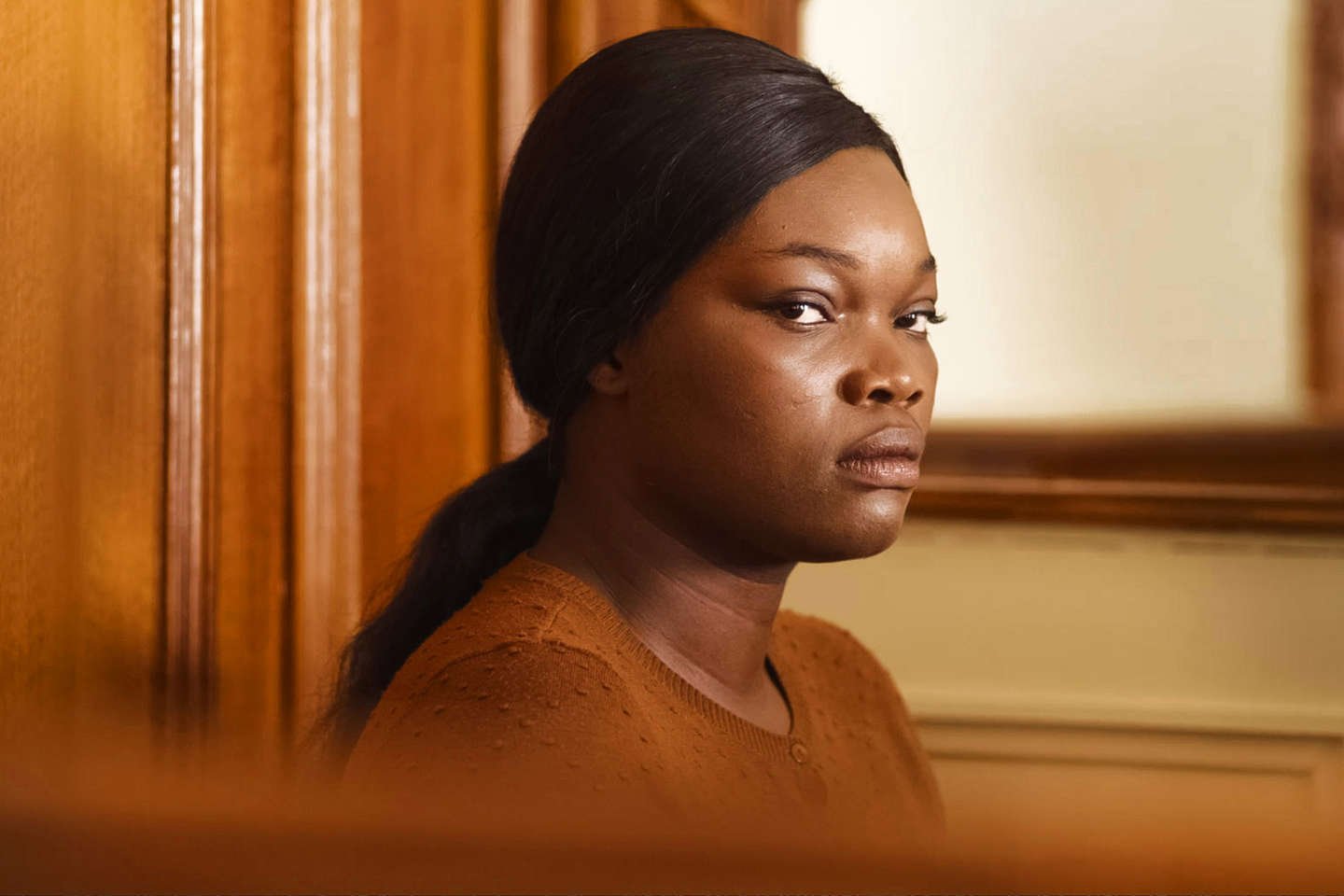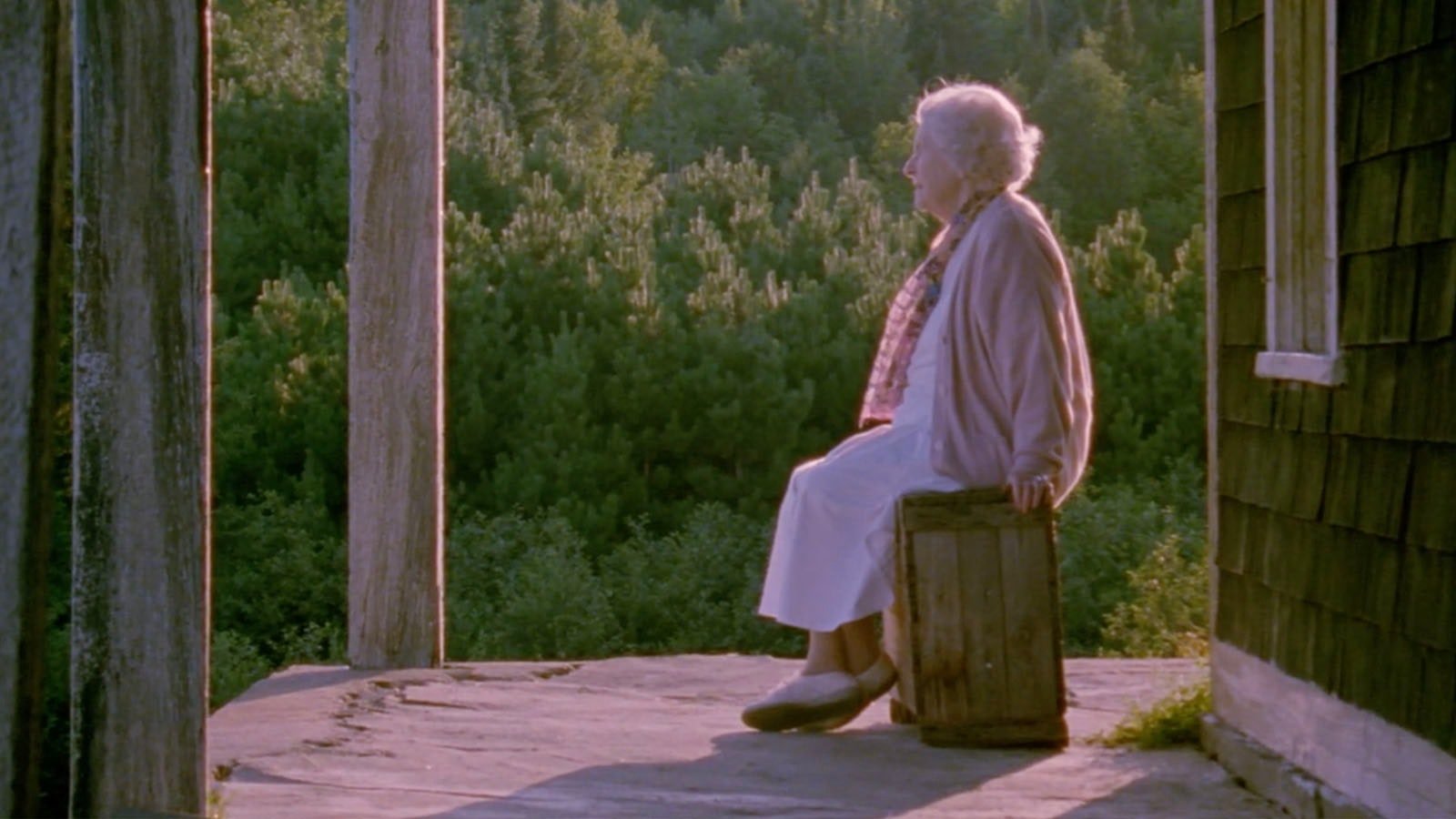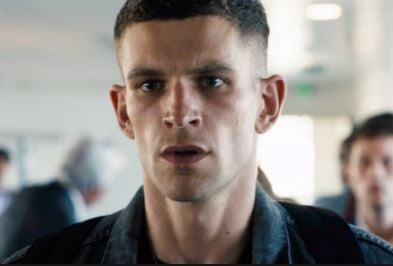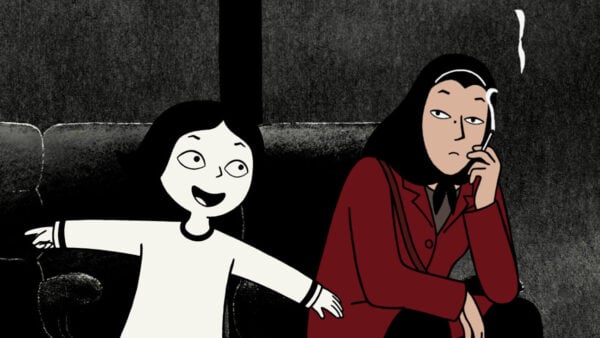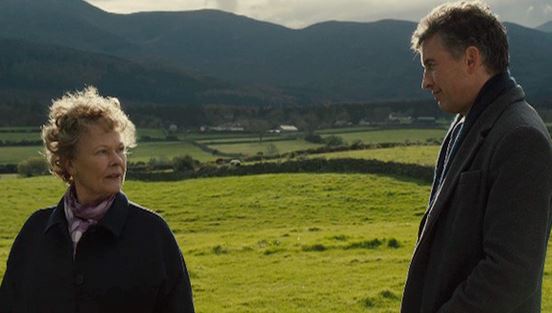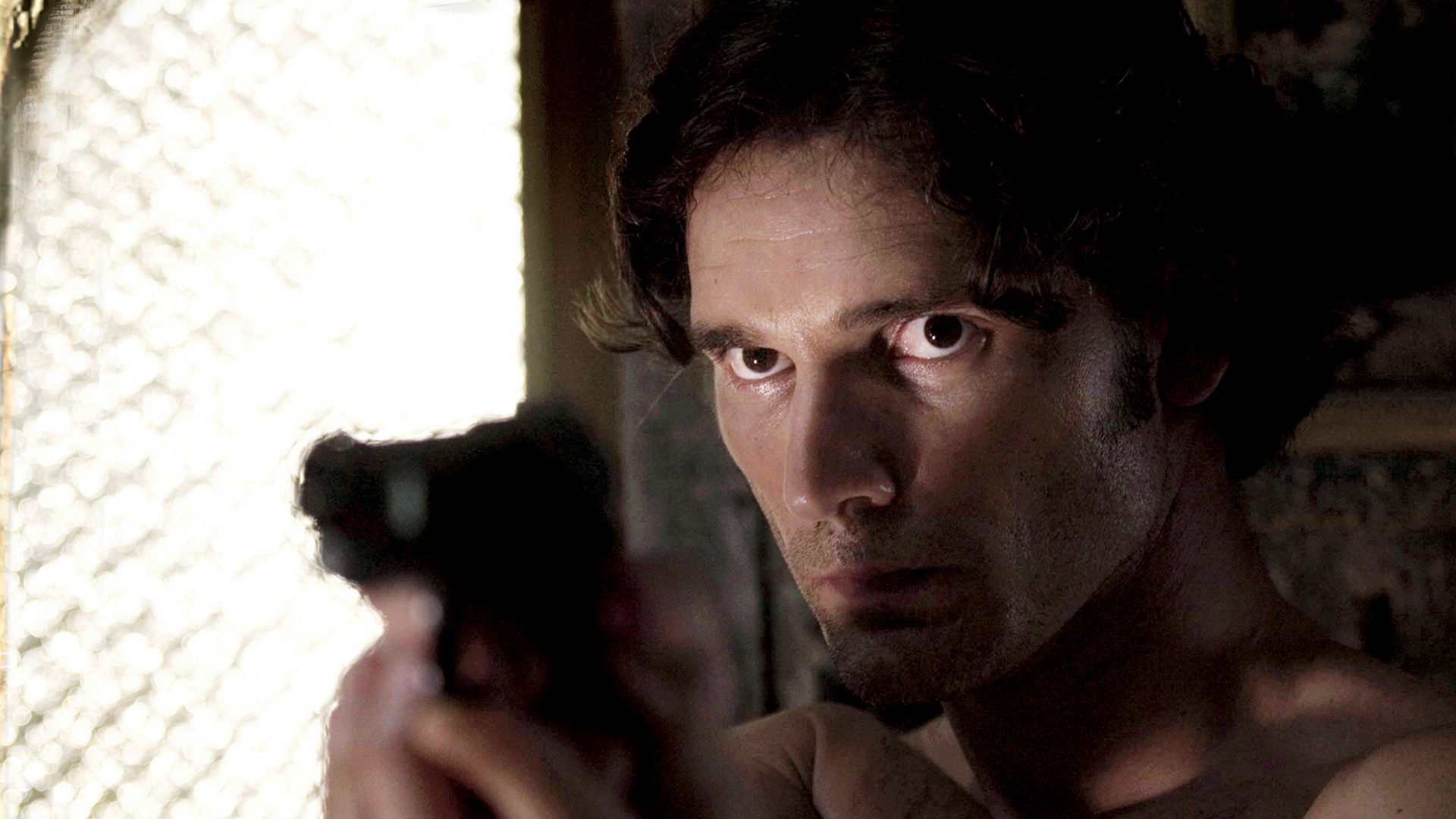
90 Best Movies Based on True Stories
March 17, 2025
Share:
Every now and then, a movie will come up with such incredible feats and unimaginable plot twists, you’ll swear it couldn’t be more unrealistic. Only in the movies, you think, can two murderers be spared for their vaudeville act or a person’s memory be reset each day. But just before the credits roll, a notice flashes onscreen: the events you just saw, outrageous as they may seem, were based on a true story.
Sometimes, the announcement doesn’t even make it in the film and you find out, mouth agape, after the fact. Other times, you come in knowing that this is all true—it’s a biopic after all, or a docudrama—but you leave in fervent disbelief that any of this transpired in real life. Whatever the case may be, it’s undeniable that it takes a special kind of skill to make a movie out of actual events. So below, we’ve gathered the best movies you can watch right now that have their roots in reality.
Read also:
11. Saint Omer (2022)
Genres
Director
Actors
Moods
Nothing about Saint Omer is easy. A female Senegalese migrant (Guslagie Malanga) is put to trial for committing infanticide, but throughout the film, it becomes clear how much of a victim she is too, of an uncaring and deeply prejudiced society. “What drove her to madness?” Her attorney asks at one point. We’re not sure. We’re not necessarily asked to side with her, nor answer the many hard-hitting questions brought up in the film, but we sit with the uneasiness of it all and, in that silence, confront our ideas about motherhood, womanhood, personhood.
This confusion is what makes the film so compelling. Despite the court’s best efforts, Laurence isn’t meant to be understood. She’s meant to be an example of the ever-ambiguous, forever-complicated, always-hurt person. It’s human nature after all to be this complex and messed up. The film shows us that the best that we can do in situations like this is to listen, understand, and as our protagonist Rama (Kayije Kagame) does, make peace with the noise.
12. The Company of Strangers (1990)
Genres
Director
Actors
Moods
It’s hard to overstate just how lovely — and quietly radical — this largely improvised Canadian docudrama is. The scenario (seven elderly women and their tour bus driver are stranded in the Canadian wilderness for a few days) is contrived, but the rich, lively conversations that feature are all drawn from the women’s real lives. As they hunker down and get on with the business of surviving with meager food — something they manage to do largely thanks to the bushcraft skills of Mohawk elder Alice — the strangers reflect on their long lives and open up to each other about their lingering fears and still-burning hopes.
They’re a diverse bunch — featuring Cockney transplants, lesbian pioneers, and nuns — and the film’s brief cuts to real photos from the women’s earlier years both underscore the rawness of what they’re saying and serve as testaments to the rich fullness of their lives. The Company of Strangers grants these women the kind of serious consideration and space that they’re denied in so many public spaces, but it never feels like a strained exercise in redressing that imbalance. Instead, this is simply a gentle, gorgeous, and profoundly moving portrait of women who aren’t done living yet.
13. Silenced (2011)
Genres
Director
Actors
Moods
Abuse is bad and should be reported, full stop. But it’s not so easy to do so, when abusers stay in positions of power, and the people who are assigned to keep them in check are cowardly against them. Silenced depicts true crime novel The Crucible, which in turn, is based on a real life case of the Gwangju Inhwa School. Through the perspective of a new art teacher, Silenced systematically outlines how difficult it is to deliver justice, from the way the school administration bribed police and the education department, to the way the court didn’t even think to hire a deaf interpreter. It’s a horrific watch, but the intensity of the depiction was needed, given that this film’s release pushed South Korea’s government to change their laws and the actual school shut down within the same year.
14. BPM
Genres
Director
Actors
Moods
Autobiographical in nature, 120 BPM is French screenwriter Robin Campillo’s first feature film. It revolves around the Parisian chapter of the AIDS advocacy group ACT UP, which Campillo was a member of in the early 1990s, and the love between Nathan, the group’s newest member, who is HIV negative, and Sean, one of its founding and more radical members, who is positive and suffers the consequences of contracting AIDS. Using fake blood and spectacular direct action, ACT UP advocated more and better research of treatment, prevention, and awareness. This was at a time when many, implicitly or explicitly, viewed AIDS as a gay disease, even as a punishment for the gay community’s propensity to pleasure and partying. The latter is reflected by the film’s title, 120 bpm being the average number of beats per minute of a house track. Arnaud Rebotini’s original score echoes the ecstasy-driven house music hedonism of the time with some effective original cuts, albeit with a melancholic streak. Because, for all the love, friendship, and emotion of the ACT UP crew that BPM so passionately portrays, anger and sadness pervade the lives of these young people as the lack of effective treatment threatens to claim the lives of their loved ones.
15. Operation Odessa (2018)
Genres
Director
Actors
Moods
The movie opens with a guy called Tarzan, saying in a Russian accent: “I called my friend Michel, and I said can I buy a submarine, a used one?” Apparently, two days later he called him back asking: “With, or without missiles?” This should give you a decent idea of how the protagonists of this Tiller-Russell-directed documentary roll. Operation Odessa is the crazy true story of how the FBI, Pablo Escobar, and the Russian Mafia were played by three criminal outsiders in a $35 million submarine deal. Strictly speaking, it belongs in the true crime documentary genre, but it can also be treated as a real-life black comedy. The protagonists are so audacious, it is hard to believe that most of this story is true. The submarine deal story is only the tip of the iceberg here. Crazy, funny, and just really well done!
16. Persepolis (2007)
Genres
Director
Actors
Moods
Persepolis is the true story of Marjane Satrapi, the writer and illustrator whose graphic novels of the same name the film is adapted from. It details in vivid animation the trials of growing up in war-torn Iran, but also, crucially, the joys of being raised by a loving family and the significance of forming one’s own ideals and identity. In between revolving dictatorships and tightening restrictions, Marjane comes into her own and discovers what it means to live a meaningful life.
It’s a testament to Satrapi’s many talents that Persepolis never feels too flat or cynical given its 2D style and bleak backdrop. The drawings impressively morph with Marjane’s every thought, as if the ink itself were alive, and her wit persistently comes through in sharp observations and dialogues. Equally impressive is the film’s commitment to portraying war and conflict in a nuanced manner. In an autobiographical tale that is about Marjane’s coming of age as much as it is about her country’s survival, it’s never been more true that the personal is political.
17. Return to Seoul (2022)
Genres
Director
Actors
Moods
In both documentaries and films, adoptees meeting their biological parents for the first time is an event often painted in a sweet light. Never mind the child’s mixed feelings about it or the tragic reality that caused the split in the first place—it’s a reunion between family members, so it must be unequivocally special. In Return to Seoul, director Davy Chou doesn’t just debunk that myth, he subverts it by making the adoptee, Freddie, as unapologetically complex and emotionally enigmatic as possible. She resists affection but wallows in loneliness. She craves reinvention but stays in the same place for years. She’s in constant motion while being absolutely stuck in life. In other words, she’s a realistic embodiment of a person struggling to find some semblance of home. Chou displays an intimate understanding of the foreign experience, and he couples it with captivating cinematography, a rousing soundtrack, and fantastic performances across the board to make a daring, inventive, and thoroughly exciting film.
18. A Beautiful Day in the Neighborhood (2019)
Genres
Director
Actors
Moods
Journalist LLoyd Vogel (Matthey Rhys) scoffs at the prospect of a profile commission, or a “puff piece”, as he calls it. His self-respect and professional ruthlessness has driven people away and this assignment may well be a test from his editor. But it is serendipity that brings Lloyd to American TV host Mister Roger (Tom Hanks) and his child-oriented show, at a time when he, a new father, is confronted with his own paternal trauma. No heavy psychological lifting here, but A Beautiful Day in the Neighborhood might be one of the most profound films about father-son relationships ever made. Notably, the film is directed by a woman, Marielle Heller (The Diary of a Teenage Girl). In her film as in his show, Mister Roger doesn’t have to do much: he listens, he speaks, he suggests, and while his kindness may seem frustrating at times, it is truly radical. Additionally, Lloyd’s character is based loosely on writer Tom Junod, whose encounter with Rogers ended up a profile in Esquire magazine.
19. Philomena (2013)
Genres
Director
Actors
Moods
An inspired by true events tale about an elderly Irish woman trying to find the child she was forced to give up many years earlier. Steve Coogan co-wrote the script and, though the base story is a tragic one, his special brand of very subtle, wry wit is apparent in the dialogue throughout. Judi Dench plays the mother who had kept her “sinful” past a secret for fifty years and, being Judi Dench, I don’t need to bother going on about her exemplary talent, suffice to say she’s charming beyond measure in the role. Steven Frears directs, as usual, deftly, and keeps the story compelling scene after scene, intensifying the emotions inherent to each, whether they be heart-warming, comedic, or outright enraging. Whoever decided to let Steve Coogan have his way with the script, it was a brave and wise choice and together this cast and crew have produced a wonderful and important piece of cinema.
20. Munich (2005)
Genres
Director
Actors
Moods
From Steven Spielberg, Munich is the sharp and thrilling depiction of Mossad agents on a mission to avenge the Munich Massacre, the killing of 11 Israeli Olympic team members at the 1972 Summer Olympics. Despite being based on real events, it’s a work of fiction. This allows the film to stand on clear yet nuanced grounds, focusing on the moral dilemmas that may rise for the secret agents and the perpetrators, now targets. The ensemble cast including Daniel Craig and Eric Bana allow Spielberg to deliver the film you can tell he wanted to make. A personal and striking effort.
Read also:
Comments
Add a comment
Ready to cut the cord?
Here are the 12 cheapest Live TV streaming services for cord-cutting.
More lists
Lists on how to save money by cutting the cord.
Curated by humans, not algorithms.
© 2025 A Good Movie to Watch. Altona Studio, LLC, all rights reserved.
